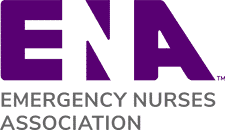
Support Programs to Enhance Access and Improve Care for Patients with Mental Illness
ENA will support policies aimed at enhancing access and improving care for patients experiencing mental illness. Further, ENA supports policies that alleviate the holding or boarding of such patients in the emergency department.
Support Programs to Improve Identification and Treatment for Patients At Risk of Suicide
Suicide rates across the nation rose 31 percent between 2001 and 2017. In 2017, suicide was the tenth leading cause of death in the U.S. ENA research indicates that taking steps to improve suicide risk assessment in the emergency department could increase the number of patients with suicidal ideation who are identified.
ENA will support policies to improve care for patients at risk of suicide, including efforts to improve screening and assessment, as well as enhance emergency department discharge planning and procedures to encourage this patient population to seek appropriate follow-up care.
Support Programs to Improve Training for Health Professionals Related to Human Trafficking and Sexual Assault
ENA will also support efforts to assist and provide high-quality care for other vulnerable patient populations, such as victims of human trafficking and sexual assault. ENA will support enhancing education and training for emergency nurses in treating these patients.
Increase Support for Trauma Systems and Trauma Centers
Trauma is the leading cause of death for people under the age of 46 and 35 million people are treated for traumatic injuries every year. Nevertheless, more than 45 million people lack access within one hour to a trauma center able to treat severe traumatic injuries.
ENA will continue to fight for legislation and funding to improve trauma care in the United States. This includes both the development of optimally functioning trauma systems and quick access to state-of-the-art trauma centers.
Maintain Funding for Poison Control Centers
According to the Centers for Disease Control and Prevention, more than 40,000 people die annually from poisoning and approximately 2,000 are treated each day in emergency departments.
ENA will support programs and funding that provide resources for the nation’s 55 poison control centers and the national poison control hotline.
Improve Treatment of Patients Who Abuse Opioids and Other Drugs
The U.S. is experiencing a historic epidemic in opioid abuse and related overdose death. In 2018, drug overdoses were the leading cause of accidental death in the United States.
ENA will support policies and federal funding to combat the ongoing national crisis of opioid addiction and overdose death, including provisions to encourage states and local communities to pursue a full array of proven strategies to combat addiction and support individuals in recovery.
Fund Research to Improve the Delivery of Emergency Care
ENA will continue to strive for improved patient safety and enhanced quality of care by collaborating with appropriate stakeholders to promote and conduct research to enhance emergency care for all patients.
In addition, ENA will support the work of the National Institute of Nursing Research (NINR) at the National Institutes of Health (NIH) and urges adequate federal funding for NINR within the overall NIH budget.
Continue and Expand Federal Research and Support for Pediatric Emergency Care
ENA will strongly support policies that will enhance emergency medical services for children. As such, ENA urges Congress to continue to support the Emergency Medical Services for Children (EMSC) program at the Health Resources and Services Administration. EMSC, which has provided funds to every state, is the only federal program dedicated to improving emergency care for children.
ENA will support legislation that reauthorizes and provides adequate federal funding for the EMSC program.
Expand Training and Resources for Stop the Bleed Campaign
ENA will support federal and state efforts to expand the distribution of anti-blood loss supplies and the training and equipping of bystanders to help in a bleeding emergency before professional help arrives.

Chief Operating Officer